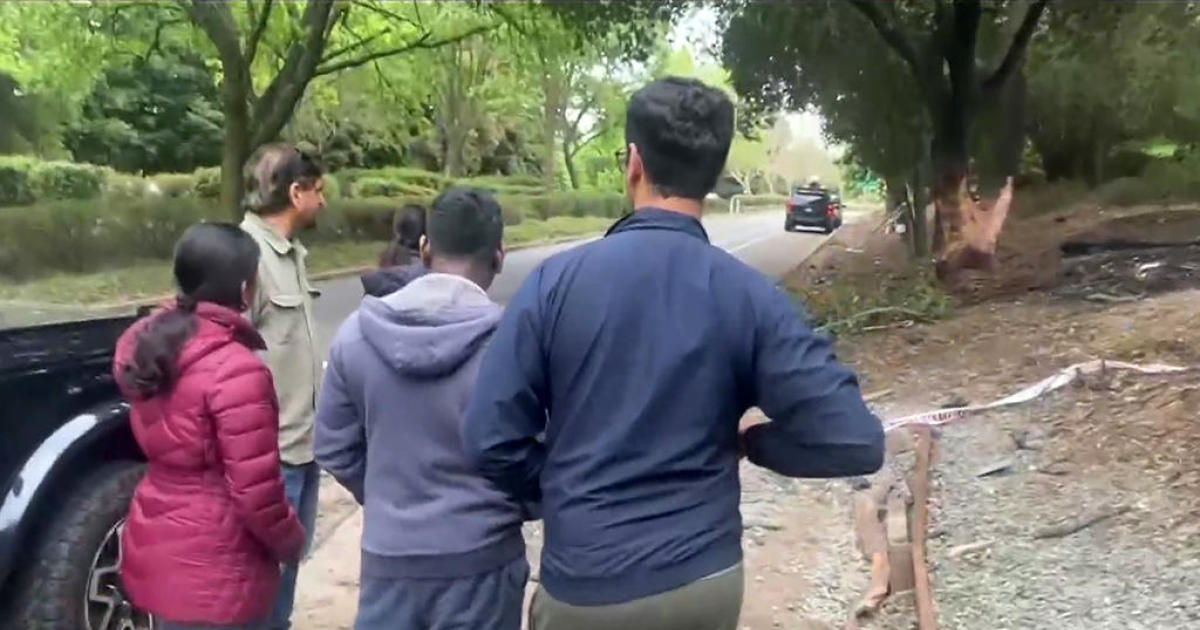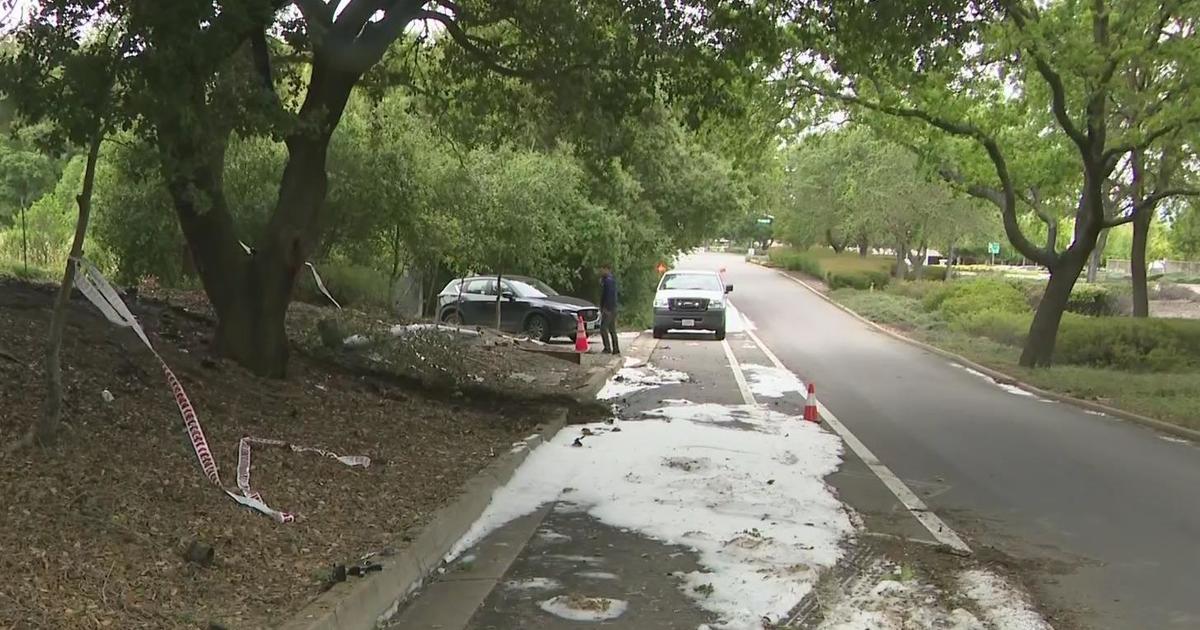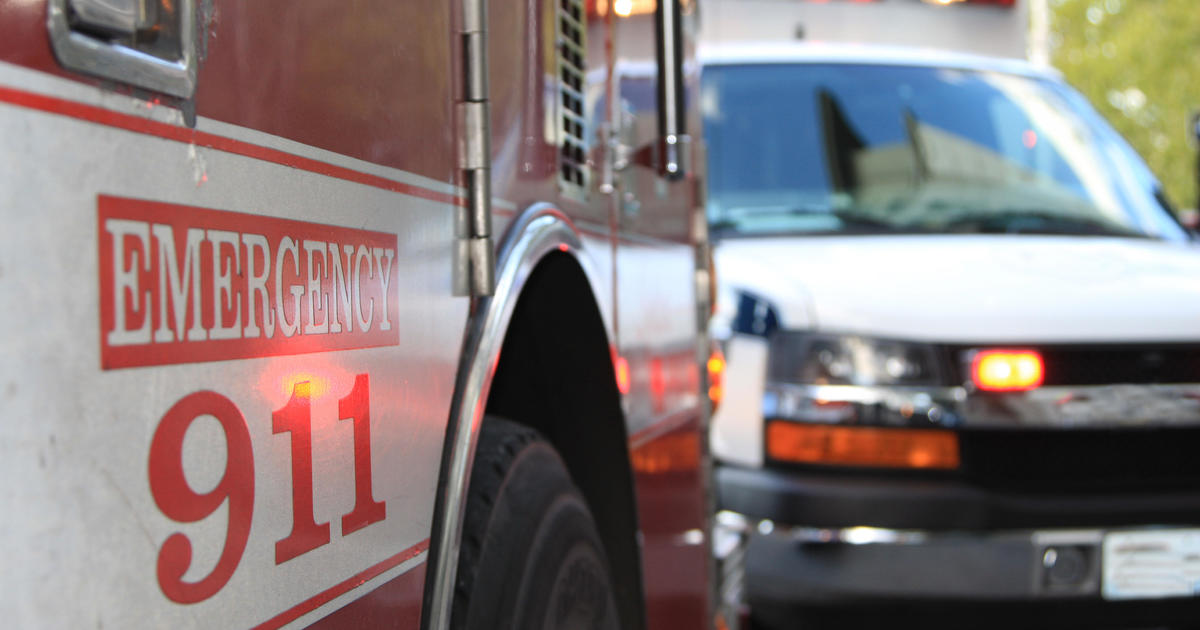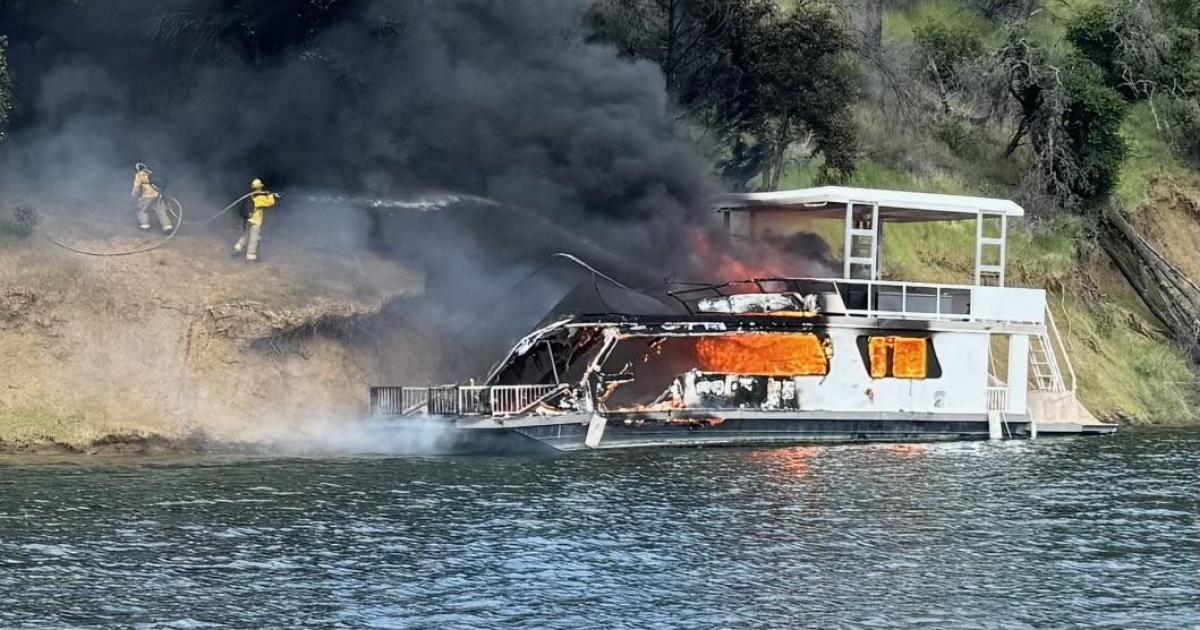Pope Francis Becomes 1st Pontiff To Endorse Same-Sex Civil Unions
ROME (CBS SF/AP) — Pope Francis became the first pontiff to endorse same-sex civil unions in comments for a documentary that premiered Wednesday, sparking cheers from gay Catholics and demands for clarification from conservatives, given the Vatican's official teaching on the issue.
The papal thumbs-up came midway through the feature-length documentary "Francesco," which premiered at the Rome Film Festival. The film, which features fresh interviews with the pope, delves into issues Francis cares about most, including the environment, poverty, migration, racial and income inequality, and the people most affected by discrimination.
"Homosexual people have the right to be in a family. They are children of God," Francis said in one of his sit-down interviews for the film. "You can't kick someone out of a family, nor make their life miserable for this. What we have to have is a civil union law; that way they are legally covered."
San Jose State University Professor Bob Rucker, who is openly gay and a devout Catholic, was married to his partner in 2014 and called Wednesday's revelation a "bombshell."
"The Pope has sent a shockwave out saying 'Listen, we need to evolve,'" said Rucker. "The Pope knows that the long tradition of centuries of this church slows this process down. And there has to be someone who comes along like himself to say okay, 2020, we're changing. We're navigating a different route, it still fits within the guidelines, the way the pope describes it. Now it's up to Catholics, to not be resistant to hearing the Word of God in the year 2020."
Gabrielle Antolovich, president of the Billy DeFrank LGBTQ+ Community Center in downtown San Jose, called the announcement "unreal." She was raised Roman Catholic but left the church in the 80s.
"Religion is a complicated issue for the LGBTQ+ community, and many of us have been hurt by the church," said Antolovich. "And so a lot of healing has to happen, and to hear the Pope supporting us is part of that healing and the rest of it has to come in time."
San Francisco Archbishop Salvatore Cordileone released this statement:
"In our bishops region's audience with Pope Francis last January during our ad limina visit (the visit diocesan bishops make every five years to the Vatican), the topic of civil unions came up in conversation. The Holy Father clearly differentiated between a civil arrangement which accords mutual benefits to two people, and marriage. The former, he said, can in no way be equated to marriage, which remains unique.
"I would add that a civil union of this type (one which is not equated to marriage) should be as inclusive as possible, and not be restricted to two people of the same sex in a presumed sexual relationship. There is no reason, for example, why a brother and a sister, both of whom are unmarried and support each other, should not have access to these kinds of benefits. Marriage is unique because it is the only institution that connects children to their mothers and fathers, and therefore is presumed to be a sexual relationship. Indeed, the sexual relationship that marriage is presumed to involve is the only kind by which children are naturally made. The nature of marriage, the place of sex within a virtuous life, these great teachings of the Church come to us from God, are illuminated by reason, and do not change."
ALSO READ: San Francisco Archbishop Performs Exorcism in San Rafael at Felled Serra Statue
While serving as archbishop of Buenos Aires, Pope Francis endorsed civil unions for gay couples as an alternative to same-sex marriages. However, he had never come out publicly in favor of civil unions as pope, and no pontiff before him had, either.
The Jesuit priest who has been at the forefront in seeking to build bridges with gays in the church, the Rev. James Martin, praised the pope's comments as "a major step forward in the church's support for LGBT people."
"The pope's speaking positively about civil unions also sends a strong message to places where the church has opposed such laws," Martin said in a statement.
However, the conservative bishop of Providence, Rhode Island, Thomas Tobin, immediately called for clarification. "The pope's statement clearly contradicts what has been the long-standing teaching of the church about same-sex unions," Tobin said in a statement. "The church cannot support the acceptance of objectively immoral relationships."
Catholic teaching holds that gays must be treated with dignity and respect but that homosexual acts are "intrinsically disordered." A 2003 document from the Vatican's doctrine office stated that the church's respect for gays "cannot lead in any way to approval of homosexual behavior or to legal recognition of homosexual unions."
Doing so, the Vatican reasoned, would not only condone "deviant behavior," but create an equivalence to marriage, which the church holds is an indissoluble union between man and woman.
That document was signed by the then-prefect of the office, Cardinal Joseph Ratzinger, the future Pope Benedict XVI and Francis' predecessor.
One of the main characters in the documentary is Juan Carlos Cruz, the Chilean survivor of clergy sexual abuse whom Francis initially discredited during a 2018 visit to Chile.
Cruz, who is gay, said that during his first meetings with the pope in May 2018 after they patched things up, Francis assured him that God made Cruz gay. Cruz tells his own story in snippets throughout the film, chronicling both Francis' evolution on understanding sexual abuse as well as to document the pope's views on gay people.
Director Evgeny Afineevsky had remarkable access to cardinals, the Vatican television archives and the pope himself. He said he negotiated his way in through persistence, and deliveries of Argentine mate tea and Alfajores cookies that he got to the pope via some well-connected Argentines in Rome.
"Listen, when you are in the Vatican, the only way to achieve something is to break the rule and then to say, 'I'm sorry,'" Afineevsky said in an interview ahead of the premiere.
The director worked official and unofficial channels starting in early 2018, and ended up so close to Francis by the end of the project that he showed the pope the movie on his iPad in August. The two recently exchanged Yom Kippur greetings; Afineevsky is a Russian-born Jew now based in Los Angeles. On Wednesday, Afineevsky's 48th birthday, the director said Francis presented him with a birthday cake during a private meeting at the Vatican.
But "Francesco" is more than a biopic about the pope.
Wim Wenders did that in the 2018 film "Pope Francis: A Man of His Word," which premiered at the Cannes Film Festival. "Francesco," is more a visual survey of the world's crises and tragedies, with audio from the pope providing possible ways to solve them.
Afineevsky, who was nominated for an Oscar for his 2015 documentary "Winter on Fire: Ukraine's Fight for Freedom," traveled the world to film his pope movie: The settings include Cox's Bazaar in Bangladesh where Myanmar's Rohingya sought refuge; the U.S.-Mexico border; and Francis' native Argentina.
"The film tells the story of the pope by reversing the cameras," said Vatican communications director Paolo Ruffini, who was one of Afineevsky's closest Vatican-based collaborators on the film.
Ruffini said that when Afineevsky first approached him about a documentary, he tried to tamp down his hopes for interviewing the pope. "I told him it wasn't going to be easy," he said.
But Ruffini gave him some advice: names of people who had been impacted by the pope, even after just a brief meeting. Afineevsky found them: the refugees Francis met with on some of his foreign trips, prisoners he blessed, and some of the gays to whom he has ministered.
"I told him that many of those encounters had certainly been filmed by the Vatican cameras, and that there he would find a veritable gold mine of stories that told a story," Ruffini said. "He would be able to tell story of the pope through the eyes of all and not just his own."
Francis' outreach to gays dates to his first foreign trip in 2013, when he uttered the now-famous words "Who am I to judge," when asked during an airborne news conference returning home from Rio de Janeiro about a purportedly gay priest.
Since then, he has ministered to gays and transsexual prostitutes, and welcomed people in gay partnerships into his inner circle. One of them was his former student, Yayo Grassi, who along with his partner visited Francis at the Vatican's Washington D.C. embassy during the pope's 2015 visit to the U.S.
The Vatican publicized that encounter, making video and photos of it available, after Francis was ambushed during that same visit by his then-ambassador, Archbishop Carlo Maria Vigano, who invited the anti-gay marriage activist Kim Davis to meet with the pope.
News of the Davis audience made headlines at the time and was viewed by conservatives as a papal stamp of approval for Davis, who was jailed for refusing to issue same-sex marriage licenses. The Vatican, however, vigorously sought to downplay it, with the Vatican spokesman saying the meeting by no means indicated Francis' support for her or her position on gay marriage.
However, the former Cardinal Jorge Mario Bergoglio was fervently opposed to gay marriage when he was archbishop of Buenos Aires. Then, he launched what gay activists remember as a "war of God" against Argentina's move to approve same-sex marriage.
The pope's authorized biographer, Sergio Rubin, said at the time of his 2013 election that Bergoglio was politically wise enough to know the church couldn't win a straight-on fight against gay marriage. Instead, Rubin said, Bergoglio urged his fellow bishops to lobby for gay civil unions instead.
It wasn't until Bergoglio's proposal was shot down by the conservative bishops' conference that Bergoglio publicly declared his opposition, and the church lost the issue altogether.
Francis, in the new documentary, essentially confirms Rubin's account of what transpired. Of his belief in the need for legislation to protect gays living in civil relationships, he said: "I stood up for that."
Francis DeBernardo, executive director of New Ways Ministry, an organization of LGBT Catholics, praised Francis' comments as a "historic" shift for a church that has a record of persecuting gays.
"At the same time, we urge Pope Francis to apply the same kind of reasoning to recognize and bless these same unions of love and support within the Catholic Church, too," he said in a statement.
However, more conservative commentators sought to play down Francis' words and said that while secular civil unions are one thing, a church blessing of them is quite another.
In a tweet, conservative U.S. author and commentator Ryan Anderson noted that he and some of his colleagues had gone on record a decade ago saying they would support federal civil unions for any two adults who commit to sharing domestic responsibilities. Such an arrangement, Anderson said, would leave churches the option of refusing to recognize these unions as marriage.
© Copyright 2020 The Associated Press. All Rights Reserved. This material may not be published, broadcast, rewritten or redistributed.
Kiet Do contributed to this report



